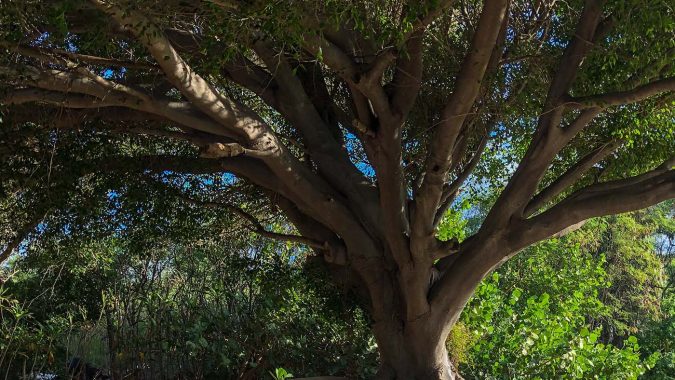
All Buddhists are fundamentally disciples of the Buddha. In scriptures, it is said that the Buddha also gave teachings beyond our human realm here in Samsara, where different forms of engagement may apply, but for us, as human beings here on Earth, our discipleship can be classified into two categories – as monastic or lay followers.
Monastic followers, referred to as bhikṣu and bhikṣuṇī in Sanskrit – male monks and female nuns, respectively – relinquish the worldly life of social privileges and responsibilities, make numerous vows, and observe a range of regulatory rules. In exchange, they receive the depth of the teachings, and practice full time accordingly.
Lay followers, referred to as upāsaka and upāsikā in Sanskrit – laymen and laywomen, respectively – take refuge in the Three Treasures (the Buddha as example, Dharma as path, and Sangha as monastics and Buddhist community), observe the Moral Precepts, and offer material support to the Sangha in exchange for simplified Dharma teachings.
In deepening their practice, many lay followers discover a heightened connection to the Dharma by becoming disciples of a living teacher. Buddhist masters describe the relationship between student and teacher as one that transcends this lifetime, so one should truly put the depth of one’s heart and being into making such a commitment.
When people from all over the world come and seek becoming a disciple of Dharma Master Cheng Yen, she begins by explaining her concept of religion and its true spirit, and how to live it out by walking the Tzu Chi path:
In Tzu Chi, we embrace people of all religions, for all religions teach love. When we have a correct understanding of the teachings of our religion, our hearts will be very broad and full of love for others, and we’ll know that living in this world, we need to love and care for one another.
Different religions may use different terms to speak about love; the essence of the spirit is the same. In Tzu Chi, we speak of “Da Ai” or “Great Love,” love that’s very big – all-embracing and without boundaries. This love is the spirit of religion.
Religion teaches us about life’s direction and purpose. In Tzu Chi, we learn to use our lives for wholesome purposes, to be of benefit to humanity. As Buddhists or religious practitioners in Tzu Chi, we not only learn about Buddhism, but also continually learn how to truly be of benefit to humanity. This learning is never ending.
Though members of Tzu Chi come from all religious backgrounds, we share a common purpose – to serve humanity with Great Love. Our goal is to truly relieve people’s suffering, and for this, we give of ourselves without asking for anything in return.
Master Cheng Yen then asks that we consider the Buddha’s teachings profoundly, and apply them in our lifestyle choices:
The Buddha told us that we and all living creatures of the world are the same in essence. Though living creatures take different physical forms, the life in all of them is sacred. When people kill them, animals feel fear and pain just like you and me. We need to love them and respect their life, just as we love and respect our own.
That is why [Tzu Chi] promotes vegetarianism. Knowing that we human beings don’t have to eat meat in order to sustain our lives, and that we can be healthy living off of the crops Mother Nature provides for us, we don’t wish to inflict pain on other living creatures or take their lives. The spirit of love for all life motivates us to abstain from eating meat by practicing vegetarianism.
Besides having love for our fellow creatures, we also need to love Mother Nature and Mother Earth. Our wellbeing is intimately connected to the wellbeing of Mother Earth. That’s why in Tzu Chi we try to lead a simpler life that uses less of the Earth’s resources. We strive not to be wasteful, to live frugally in a way that protects the environment. We know we need to take good care of Mother Earth, for her fate and ours are intertwined.
When taking refuge within the Jing Si Dharma lineage of Tzu Chi, a path of compassion in action, Master Cheng Yen also asks that we cherish the limited time we have in this life, and devote ourselves to practice accordingly:
[The Buddha] taught us that as life is impermanent, we need to recognize what is life’s true value and make the most of our lives for the good of others.
Ultimately, Master Cheng Yen asks us this:
If you wish to become my disciple, please emulate the heart of a Buddha and take my mission as your own mission. My mission is to share the wonderful wisdom of the Buddha with the world, so that people everywhere may walk together on the path of enlightenment.
I am a disciple of the Buddha and I strive to have the same heart as the Buddha – a heart of great compassion and selfless love. In becoming my disciple, I hope all of you will strive to have this kind of heart also, and to emulate the Buddha’s spirit and have selfless Great Love.
Please also keep a very pure and upright heart, grounded in sincerity, integrity, good faith, and honesty. Do not seek fame, wealth, or self-gain. Be sincere towards others and do things with integrity and righteousness. This is the spirit we need to have in learning the Buddha’s teachings and practicing them in our daily lives.
At the same time, I hope you can help me to care for people who are in need. Wherever you live, if there are people suffering, please work to relieve their suffering. May you walk this path and grow in wisdom and blessings.
The sections in italics consist of material compiled into English by the Jing Si Abode English Editorial Team, based on Dharma Master Cheng Yen’s talks.
































